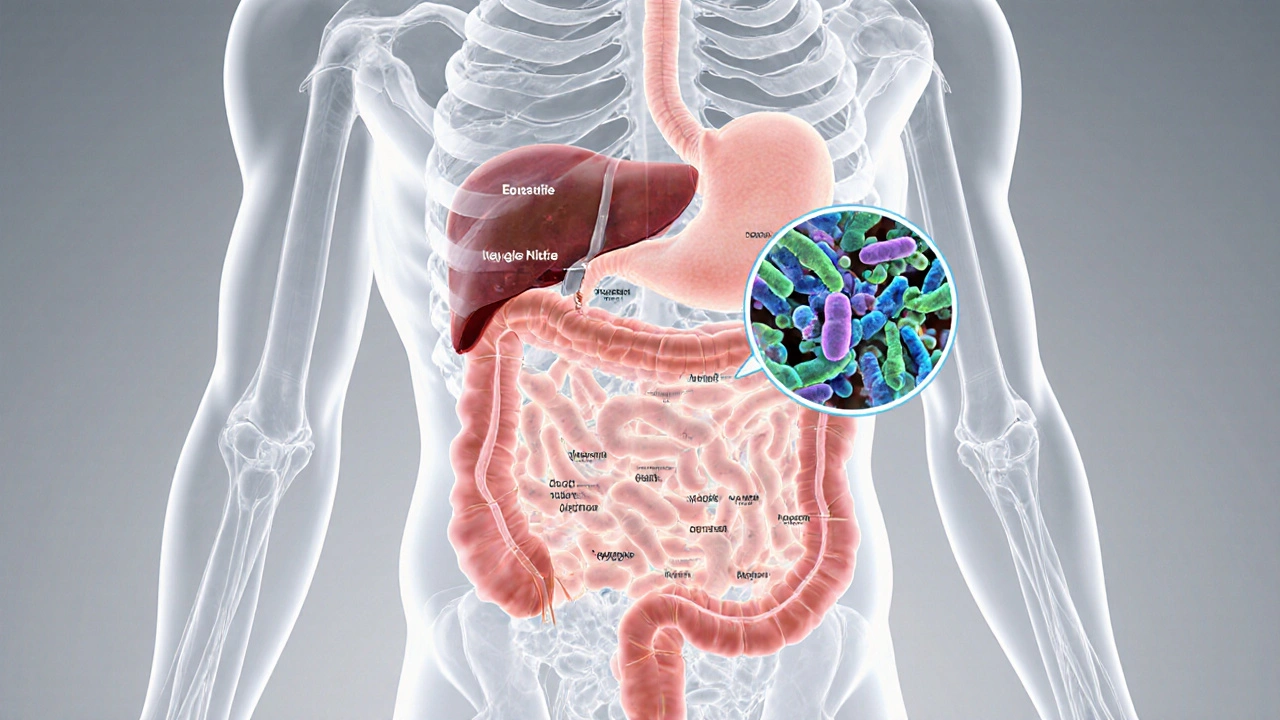Gastro Health: Simple Steps to Improve Your Gut
Your gut affects more than digestion. It shapes energy, mood, sleep, and immunity. This page collects clear, practical tips and the best articles from Karma Health Hub to help you feel better fast.
Quick, real changes you can make
Eat more fiber. Aim for vegetables, fruit, beans, and whole grains every day. Fiber feeds helpful gut bacteria and reduces bloating. Try one simple swap: trade white bread for a whole-grain alternative at breakfast.
Add fermented foods. Plain yogurt, kefir, sauerkraut, or miso bring live cultures into your meals. Start with one small serving daily—yogurt on your morning cereal or a spoonful of sauerkraut with dinner.
Include prebiotics. Foods like garlic, onions, leeks, bananas, and oats feed the good bugs already in your gut. Mix prebiotic foods into meals you already make—add chopped onion to soups or a banana to your smoothie.
Hydrate consistently. Water helps digestion and moves fiber through your system. Keep a bottle near you and sip throughout the day rather than chugging large amounts at once.
Watch added sugar and ultra-processed foods. These can feed harmful bacteria or promote inflammation. Instead of cutting everything out, replace one processed snack a day with a whole-food alternative like a handful of nuts or carrot sticks with hummus.
Move your body. Regular exercise improves gut diversity and can ease constipation. Short walks after meals help digestion. Aim for 20–30 minutes most days—even brisk walking counts.
Sleep and stress matter. Poor sleep and chronic stress change gut bacteria and slow healing. Try a short breathing break or a five-minute walk when stress spikes. Small fixes stack up.
Where to start and when to read more
Start simple: add one fiber-rich food and one fermented food this week. Notice changes in bloating, energy, or stool. If you want deeper guides, check our posts like “Gut Health: Simple Steps for a Healthier You,” “Gastro Health: How Your Gut Shapes Your Well-Being,” and “Gut Health Breakthrough: Simple Steps for Complete Wellness” for meal ideas and easy habits.
Try practical combos: overnight oats with banana and a spoon of yogurt for breakfast, a lentil soup with garlic for lunch, and a colorful salad with beans at dinner. Swap one sugary drink for water or a health juice after workouts to support recovery and hydration.
See a healthcare pro if you have severe or new symptoms—heavy abdominal pain, unexplained weight loss, blood in stool, or ongoing diarrhea. Those signs need prompt attention.
Small, consistent changes beat dramatic short-term fixes. Pick one habit, stick with it for two weeks, then add another. Your gut responds to simple routines, and better gastro health usually shows up in your mood, energy, and sleep.

Effective Strategies for Maintaining Excellent Gastro Health
Learn practical, science-backed strategies to improve your gastro health through diet, chewing, hydration, stress management, and lifestyle changes-without extreme restrictions or supplements.
Read More
Gastro Health Guide: How to Boost Your Gut Wellness
Learn how the digestive system works, get practical gut health tips, discover when to see a doctor, and follow a daily checklist for better gastrointestinal wellness.
Read More
Gastro Health: How Your Gut Shapes Your Well-Being
Your gut does way more than help you digest food—it can impact your mood, immunity, and even your energy levels. This article explores the strong link between gastro health and overall well-being, shares surprising facts, and gives you down-to-earth tips you can actually use. No fake promises—just helpful, science-backed advice. Learn what your gut’s really telling you and discover simple steps for better daily health. Your stomach might be the boss of your whole body and you didn’t even know it.
Read More
Debunking Myths About Gastrointestinal Health
Explore the truth behind common misconceptions about gastrointestinal health. Understand how diet, stress, and lifestyle impact digestion. Discover practical tips to maintain a healthy gut. Get insights into misunderstood factors affecting the digestive system. Learn easy and actionable advice from experts.
Read More
Gastro Health and Disease Prevention: Essential Insights
Diving into the crucial connection between gastro health and disease prevention, this article outlines the fundamental roles of a healthy digestive system. It offers practical tips, interesting facts, and essential advice on maintaining optimal digestive health to fend off various diseases and improve overall well-being.
Read More